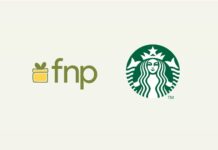New Delhi, March 15, 2021: Tata Group has sought Competition Commission of India’s approval on its deal to buy a majority stake in BigBasket, indicating that the two enterprises have inked an agreement, as per a report by Reuters.
Tata Digital Limited, a wholly owned subsidiary of Tata Sons, will be acquiring a 64.3% majority stake, a filing with the Competition Commission of India (CCI) has revealed. The acquisition — which was first reported last month — will position the Tata group as a major player in the burgeoning online grocery market.
Per the filing, Tata Digital will acquire up to 64.3% of the total share capital of Supermarket Grocery Supplies Private Limited (SGS), which runs Bigbasket’s B2B operations.
In light of Tata Group acquiring a stake in BigBasket, Rohan Agarwal, Director at consulting firm RedSeer, said, “Tata Group has a significant presence in the Indian retail market across the categories, and given an online presence is now necessitated, the potential deal will ensure faster entry into the eGrocery segment. For Bigbasket, the deal helps in getting the needed funds and support for the next wave of growth.”
According to RedSeer, grocery is the largest contributor to the retail basket of Indian consumers, but the online penetration has been quite limited compared to other categories (like electronics, fashion, beauty etc.).
With the COVID lockdown in 2020 and the associated tailwinds for the e-grocery, the GMV grew to USD $3.3 billion. The consumer base got democratized (smaller towns, diverse income groups), all categories including fresh (fruits & vegetables) were purchased, and the brands started focusing on the online channel according to the reports published in indiaretailing.com.
“This is just the start for online grocery, and we believe it will grow quite strongly over the next few years to become USD $24Bn by 2025 (up from our pre-COVID estimates). The opportunity is quite sizable, and we expect multiple large winners here catering to varying customer segments (convenience vs. value/ Metro Tier I vs. Tier II+) and use-cases (stock-up vs. top-up vs. on-demand). Definitely an exciting space to watch out for, with the large offline retailers intensifying the already competitive space of multiple online models (horizontal etailers/ grocery verticals/ hyperlocal/ social commerce). And also, how this segment caters to larger value focused masses beyond the top-10 city play currently,” says Rohan Agarwal.
Meanwhile, rival Flipkart has announced plans to expand to more Indian cities, while Reliance’s digital unit – which is likely to support its grocery service – has raised more than $20 billion from investors including Facebook and Alphabet’s Google.




























